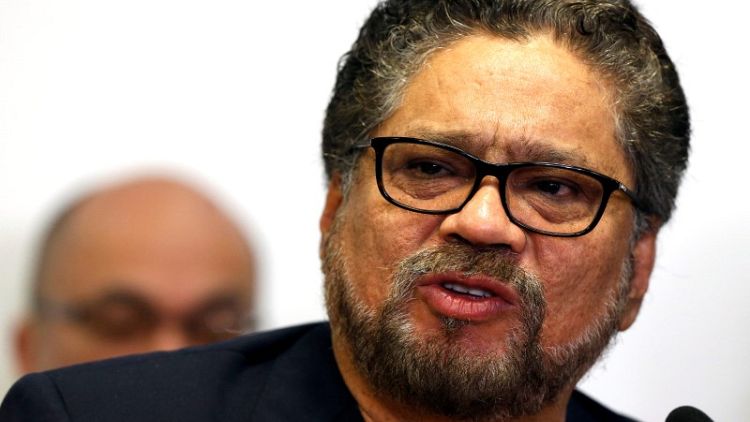BOGOTA (Reuters) - Colombian former FARC guerrilla commander Ivan Marquez said on Monday he will not take his seat in the Senate this week to protest the arrest of fellow rebel Jesus Santrich and changes to the peace accord he said betrayed and disfigured it.
Marquez and another nine former leaders of the Revolutionary Armed forces of Colombia (FARC) were due to be sworn in to congress on Friday as part of a peace agreement signed in late 2016 that put an end their part in a five-decade conflict.
Benkos Bioho, another former FARC fighter, will take his seat instead, according to media reports.
Marquez also blamed changes to the original peace agreement and failure to allow the group to transform to legal politics as the reasons for his decision.
"I feel that Colombian peace is trapped in the networks of betrayal, and not so much because the agreement has not materialized - which requires some time - but because of the modifications introduced that disfigured the agreement," Marquez said in a letter carried in local media.
Right-wing President-elect Ivan Duque will take office on Aug 7, replacing President Juan Manuel Santos, who won a Nobel Peace prize for his efforts to end the war. Duque has said he will make modifications to the accord and wants FARC leaders to serve sentences for crimes before they take their seats.
Santrich was indicted in April by a U.S. grand jury for conspiring with three others to export 10 tonnes of cocaine, worth $320 million in street value, to the United States.
Marquez called the arrest a "judicial setup" and said it put the peace deal between "life and death."
Crimes committed by FARC members during the war are set to be adjudicated by a special tribunal, which opened on Friday, but those committed after demobilization are subject to regular judicial procedure, which includes the possibility of extradition.
The terms of the accords allowed alternative sentences if the former rebels confessed before the special tribunal and paid compensation to their victims.
The government says Santrich's alleged crimes took place after the deal was signed.
More than 220,000 were killed during the war and millions have been displaced.
The FARC was allowed to form a political party, which kept its famous acronym as the Revolutionary Alternative Common Force. As part of the accord, five seats in each house were assigned to it through 2026.
(Reporting by Helen Murphy; Editing by Steve Orlofsky)


